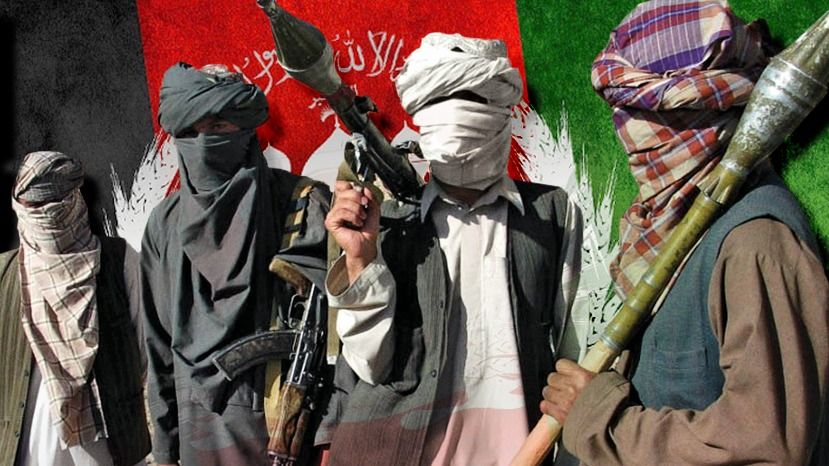Afghanistan has again become a hotbed of political instability and violence, and in recent days there have been numerous tragic events. On the 15th of August a suicide bomber blew up the Mawood private academy with at least 100 students present. According to media at least 48 are confirmed dead and 67 were injured. The president of Afghanistan, Mohammad Ashraf Ghani, sharply condemned the terrorist act.
Afghanistan is currently experiencing a general escalation of terrorist attacks by militant organizations. On 14th of August the Taliban led an attack against the Afghan military and dozens were killed.
Since last week, fighting in the Ghazni province has been continuous; the victims of this conflict are in the hundreds (including both soldiers and militants). The United States is interfering in the conflict, as per tradition.
The Political Layout
The main force which is acting to destabilize the situation in Afghanistan is the Taliban. In 2017, ISIS and the Taliban declared a joint Jihad. All in all, this war has been waged for over 16 years.
Experts link the recent upsurge in violence, in part, to internal political events in Afghanistan. On July 2nd, Ghani ordered the arrest of field commander Nizamuddin Qaisari, an ethnic Uzbek. He was charged with making death threats and threats of terrorism during a security meeting in the northern province of Faryab.
Kaisari is a follower of another important political actor, Abdul-Rashid Dostum, who is one of the most popular political figures among the Uzbeks. Ghani’s strength depends heavily on Dostum’s position.
Attempts to Reach an Agreement
One of the key questions which has come up this year is the possibility of the government officially recognizing the Taliban movement. In connection with the ongoing war, Ghani has expressed his readiness to recognize them as a legitimate political group, and to introduce a cease-fire “without preconditions”.
The Taliban stated that they are ready to participate in negotiations under certain conditions (for example, the erasure of all Taliban militants from the US and UN terrorist lists). In addition, there were demands for lifting international sanctions, and recognizing their office in Qatar. In the course of full negotiations, it is in the Taliban’s interest to review the Bonn agreement of 2001, the 2004 Constitution, as well as the 2014 agreement with the United States on the security of Afghanistan (with reference to American presence in the country).
Despite some initial success, in late June the truce between Ghani and the Taliban fell apart, and escalations resumed.
US activity and loopholes in Eurasia
It is worth recalling that the coalition led by the US in Afghanistan officially completed its military mission in Afghanistan in December 2014, but since then, US troops remain in the country, train Afghan soldiers, and offer them military assistance.
For the United States, the area is strategically important: it is the border of their main geopolitical rivals – Russia and China. This means that destabilization in the area affects them first. Thus, an unstable Afghanistan is a convenient lever of pressure for the US. The US also organized the presence of ISIS in Afghanistan, which, in addition to the Taliban, have brought chaos to the region.
For the United States, Afghanistan is a loophole to gaining access to Eurasian space. For example, it acts as a pretense to foster collaboration with Kazakhstan, entering their territory in order to “help” the Afghans.
The United States coordinates questions regarding Afghanistan with the UAE and Saudi Arabia. On the eve of the breakdown in relations between the Afghan government and the Taliban, the “Afghan issue” was discussed at talks between US Secretary of State Mike Pompeo and the crown prince of Saudi Arabia Mohammed bin Salman. The possibility of a ceasefire in Afghanistan during Eid al-Adha (Kurban Bayram), which is celebrated at the end of August, was formally discussed.
According to recent reports, Washington annually spends about $45 billion to support its forces in the country. In February, the United States began withdrawing troops from Iraq and moving them to Afghanistan, and the country is already host to a large contingent of US troops and NATO bases, with a total active force of around 16,000.
Prognosis
According to Toby Lancer, the UN coordinator for humanitarian affairs in Afghanistan, the war-torn country might “face a disaster” if international structures do not intervene. The war is aggravated by serious climate issues: the last major drought ended following heavy snowfall in the region.
The condition of the state’s survival is the cessation of the war. If the current trend continues, Afghanistan is threatened with total collapse, which would also lead to terrorist attacks and war in the surrounding regions.
Kabul can only achieve peace through negotiations with the United States which include the participation of Russia, Pakistan, Iran, India and China– and, in the long term, Turkey, which has a strong influence on Dostum (and hence the Uzbek population generally). Iran could help to resolve current conflicts with Shia groups, and Russia could help with Persian-speaking Tajiks. China (which categories its interests in the region under its “One belt – One Road” policy and the economic corridor with Pakistan) can help with mediation in negotiations with the Taliban, who came to China in 2016. India is interested in the development of the Iranian port of Chabahar (an agreement has already been signed with Afghanistan and Iran on the deal) as a path into Eurasia. China is also interested in Chabahar, as it could serve to help keep the Indian Ocean free from threat.
Key regional players understand that the continuation of the conflict would result in losses for all parties. While the Atlanticists attempt to sow discord in relations between Kabul and the Taliban, the alternative axis (Iran, Turkey, China, Russia, India and Pakistan) will strive to ensure stability in the region. Other countries in the region might also prefer stability… for instance, Tajikistan will likely get involved. The president of Tajikistan Emomali Rahmon will soon arrive in Tashkent, where one of the topics will be the future of Afghanistan.

















Leave a Reply